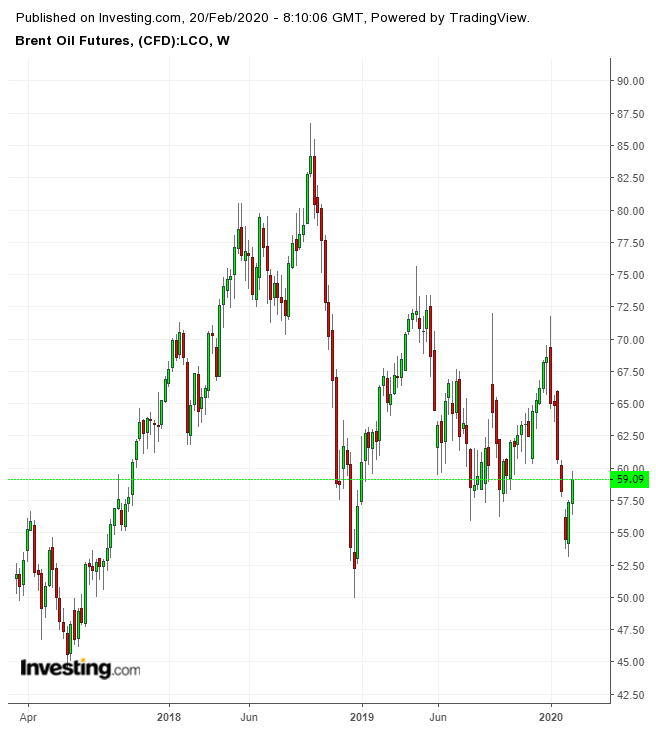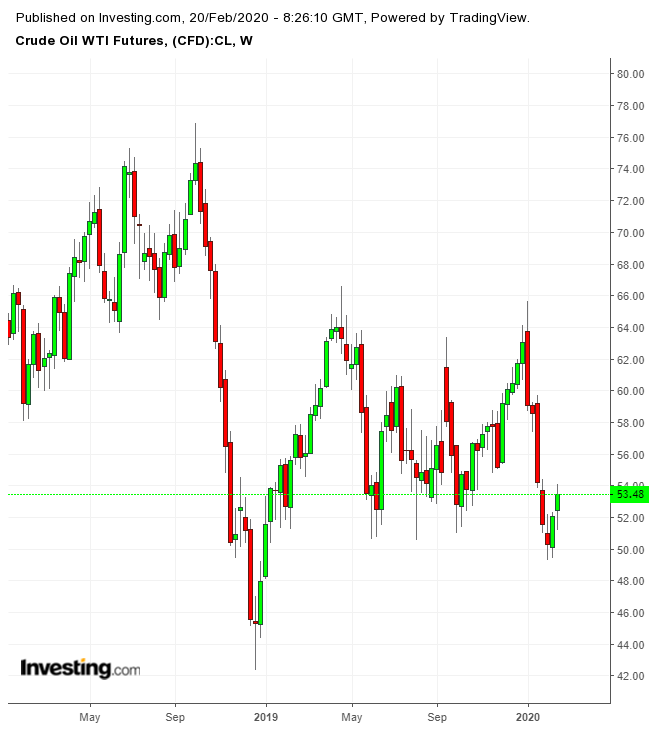The price of Brent rose 10% over the past 7 days, to trade around $59 per barrel on Wednesday. The U.S. stock market made moves higher as well, although companies connected to China, such as Apple (NASDAQ:AAPL), saw their shares fall.

If coronavirus is truly affecting China’s economy, as the news has indicated, we would expect oil prices to have continued their downward trend from early last week. Transportation across China is reportedly heavily depressed, as are trade and air travel. Oil refineries are said to be processing 25% less crude oil than they were at this time last year.
Despite the negative news, oil prices rose. These moves higher seem to be fueled, in part, by the belief that Chinese oil imports have continued at close to normal levels, with the Asian nation importing over 10 million bpd of oil. Consider that China’s oil imports alone are typically equivalent to about 10% of global oil production, about 100 million bpd.
Aside from reports at the beginning of February that Chinese oil buyer Unipec stopped buying cargoes from West Africa, it seems that all of the major suppliers—such as Saudi Arabia, Russia and Iraq—have continued to export oil to China at typical rates.

Chinese Oil Imports: A Closer Look
TankerTrackers.com recently observed a backlog of tankers on China’s coastline that amounts to about three days’ worth of oil imports from Saudi Arabia, Iraq, Oman, Indonesia and Brazil, among others.
This buildup may indicate that China is unable or unwilling to import oil at pre-coronavirus rates. Alternatively, China could be deliberately allowing the tankers to pile up in order to use the coronavirus as an excuse to negotiate for lower prices.
We won’t know how much oil China is importing and whether coronavirus is impacting oil imports until China’s General Administration of Customs releases the data for February. Media organizations such as Reuters and Platts typically report China’s oil imports for the month about a week after the month ends.
If China reports oil import numbers for February similar to pre-coronavirus numbers, we should assume that China is putting more oil into storage. In that case, the important question to ask is why? Why would China continue to import oil it doesn’t need and put that oil into storage?
There are two logical answers to this question:
1. China is hedging, believing that the price it is getting for this oil now is better than the price it would pay in the future. This would show that China’s oil buyers believe that the coronavirus is dissipating, that the Chinese economy will soon recover and that oil prices are set to head higher in the future.
2. China is buying oil now because it believes it will either lack access in the future or will need to use a lot of oil in the future, perhaps for government activity.
And, If Imports Have Dropped...
On the other hand, if China reports that oil imports for February are dramatically below pre-coronavirus imports, it would show that the coronavirus is having a negative effect on China’s economy and will continue to weigh on China’s economy for some time.
Lower numbers would mean that the nation sees no reason to hedge and buy oil for storage now because the price will be lower in the future. This would be a bad sign for both China and the global economy.
OPEC and OPEC+ will be meeting on March 5 and 6, and you can be sure that they will be looking at their own estimates of China’s demand. They have access to information from the producers and exporters from their countries, so they should be able to build a good assessment of China’s current situation. If they see continued high demand from China, they will feel less pressure to increase production cuts.
